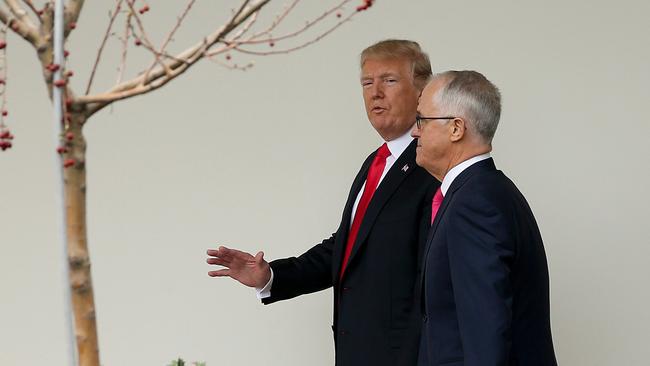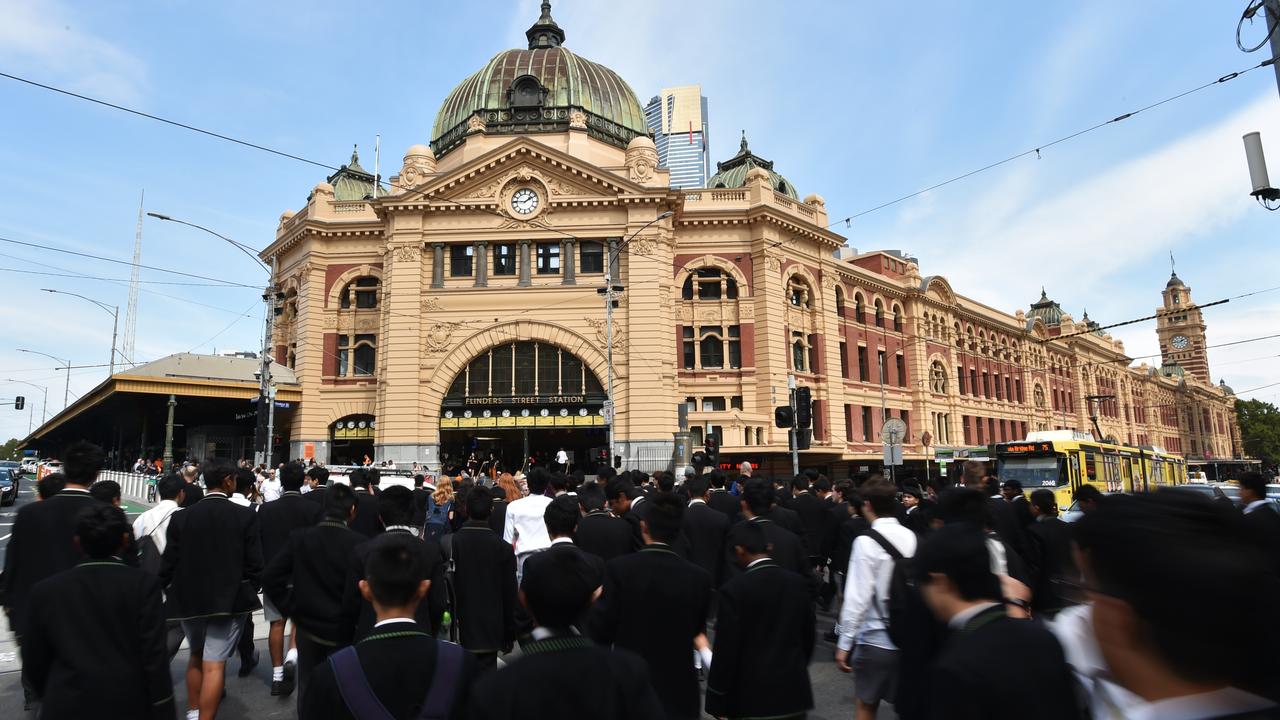US tariffs: Shorten should chill out and remember his history

Australia’s most eminent economist, Max Corden, describes protectionism as a “social disease”. Once it takes hold it is hard to get rid of as it feasts upon the economy. One country gets it and the infection spreads.
The rapidity of the contagion was seen last Friday when, within a few hours of Donald Trump’s announcement of tariffs on steel and aluminium, Bill Shorten was calling for Malcolm Turnbull to act. “What steps is he doing to protect Australian jobs and businesses?” he asked. “We’ve got one of the most open markets in the world and I just want to make sure we look after the Australian jobs,” he said, implying that our markets were too open.
Here was a point of immediate political advantage for the Opposition Leader. If the Prime Minister failed to roll back the US tariffs — a near-impossible task — it would be Labor left standing up for the workers by calling for tough retaliation. The government could try to outflank Labor with tough action of its own, but Shorten could always go further.
European Commission president Jean Claude Juncker was already threatening to hit back at the US with tariffs on Harley Davidsons, bourbon whiskey and blue jeans, leading Trump to tweet back a threat to raises tariffs on imports of European cars. The Chinese had already launched anti-dumping inquiries into US sorghum, following the imposition of US tariffs on imports of washing machines and solar panels.
Yet somewhere in the memory of the Labor leader should lurk the consciousness that his is the party of free trade. As Shorten’s assistant Treasury spokesman Andrew Leigh has pointed out, Labor governments were responsible for the three most substantial decisions to reduce protection — Gough Whitlam’s 25 per cent tariff cut in 1973 and Bob Hawke’s tariff cuts of 1988 and 1991.
These were all undertaken unilaterally without seeking any reciprocal action and reversed the policy of building Australia’s manufacturing behind protectionist walls that had prevailed since Federation.
Leigh argues that these leaders were driven by economic ideas and were skilful enough politicians to implement difficult policy without splitting their party.
As prime minister, Paul Keating was instrumental in getting the Asia-Pacific Economic Co-operation forum to sign up to unilateral tariff reductions. He understood that a country finds its prosperity from its own trade policy, not other nations’, and that protection results in inefficient investment.
“There is no concept of a level playing field outside Australia. Outside Australia, you just cross the low-water mark, it’s catch-as-catch-can everywhere,’’ he said.
“They all cheat. They all muck about. They all play favourites. But inside, you’re only cheating yourself if you run policies which have scarce national savings going to the wrong places.’’
Corden, who recently celebrated his 90th year with the publication of his autobiography, is renowned for explaining the flaw in protectionist policy.
Tariffs attract resources to the sector they are shielding but are effectively a tax on everything else. Moreover, if a nation puts a tariff on an input, such as steel or aluminium, it makes the final product less internationally competitive, as US makers of cars, whitegoods and machinery are about to discover.
In the 1960s, he helped to quantify the impact of tariffs, devising a method of calculating how much of the value added in a locally produced good was accounted for by tariff protection. Apart from being a significant advance in global trade theory, it highlighted the massive inefficiency of Australia’s tariff walls and gave the then head of the Tariff Board, Alf Rattigan, the ammunition he needed to mount a campaign for unilateral liberalisation.
Corden acknowledges that translating his theory into public policy was helped by a media campaign, in which two former economics editors of The Australian — Ken Davidson and Alan Wood — were leading figures. It was also assisted by the engagement of top-quality economists in prime ministerial offices, with Whitlam employing Fred Gruen and Hawke Ross Garnaut, both having made important contributions to trade theory, at the Australian National University.
Led by Corden, Australian economists have made the greatest international contribution to understanding the impact of tariffs, reflecting the fact that Australia was more hooked on protection than any other advanced nation. While the US learned from the 1930s Depression that tariffs were destructive to its own interests, it has plainly forgotten.
The Trump administration claims that steel and aluminium imports are jeopardising its national security. The world trade agreement allows countries to determine their own security concerns, so the action is legal, whereas retaliatory measures would not be, under the agreed trade rules.
The European measures would essentially hurt European consumers of American motorbikes, jeans and whiskey but would have zero impact on US steel and aluminium production.
Steel and aluminium represent less than 2 per cent of the EU’s $US420 billion ($538bn) in exports to the US, so retaliation which invites further US barriers would risk a lot of pain for no gain.
The threat to the global steel trade from the proposed US action has been wildly exaggerated.
The US objective of lifting its steel production by nine million tonnes would displace just 2 per cent of world steel trade, and that should easily be absorbed as the world economy enjoys growth rates heading to 4 per cent.
Raising tariffs to protect Australian steel and aluminium plants would be a folly, and simply damage their competitiveness and our manufacturing industry.
In the unlikely event that there is an impact on our steel and aluminium plants, the best the government could do would be to assist the industry and its workers to adjust.
While the Turnbull government should be doing everything it can to persuade the US to change course, the message to Shorten should be to take a chill pill and remember his history.


